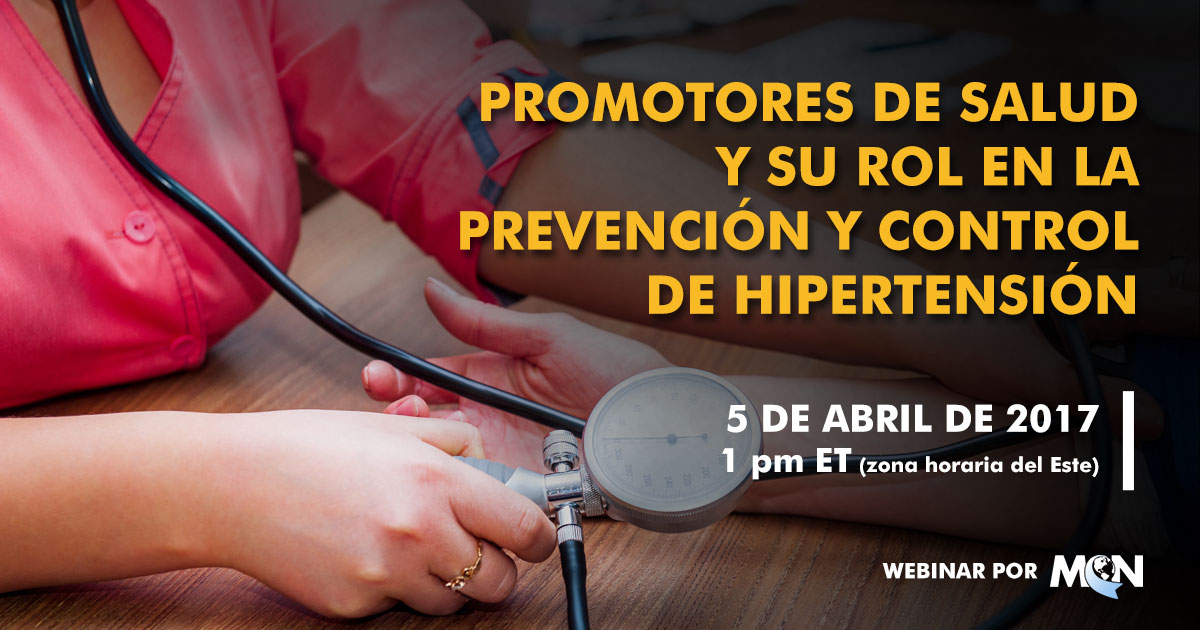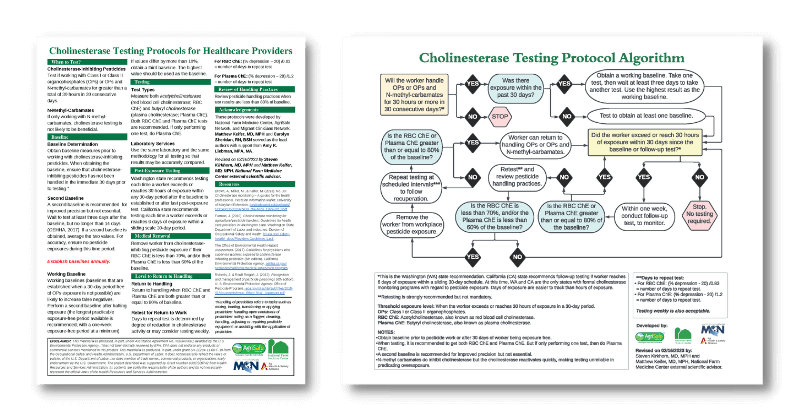
FECHA DE GRABACION: 5 de Abril de 2017, 1 pm ET (zona horaria del Este)
ORADORA: Ileana Ponce-González, MD, MPH, CNC
Crédito de educación continua
Para recibir credito de Trabajador/a de Salud Comunitaria o Educacion de Continua de Enfermera después de ver alguno de estos seminarios usted debe hacer lo siguiente:
- Completar la evaluación participante asociado a cada webinar
- Enviar un correo electrónico con su nombre y apellido indicando que ha completado a contedu@migrantclinician.org
Descripción
En este webinar, los participantes podrán identificar las medidas de desempeño de la Administración de Servicios de Recursos de Salud relacionadas con la hipertensión, describir cómo medir la hipertensión en el cuerpo, entender cómo alentar a los pacientes a controlar y manejar su presión arterial alta y entender las principales barreras que enfrentan pacientes en el control y manejo de su presión arterial alta.
Objetivos de aprendizaje
- Identificar los síntomas y signos de presiones sanguíneas altas
- Describir cómo se puede medir la hipertensión en el cuerpo
- Alentar a los pacientes a controlar y manejar su presión arterial alta
- Comprender las principales barreras que enfrentan los pacientes en el control de su presión arterial alta
Lectura Adicional
- HRSA: Hypertension Controls
- NIH: Help Your Heart: Control Your High Blood Pressure - Handouts
- NIH: Description of High Blood Pressure
- NIH: How Is High Blood Pressure Treated?
- NIH: Impediments to and potential strategies for effective blood pressure control
- USPSTF, AAFP Finalize Hypertension Screening Recommendations for Adults
- WSDF: Improving the Screening, Prevention, and Management of Hypertension
Este proyecto cuenta con el apoyo de la Administración de Recursos y Servicios de Salud (HRSA) del Departamento de Salud y Servicios Humanos de los Estados Unidos bajo el acuerdo de cooperación número U30CS09742, Asistencia Técnica a Centros de Salud Comunitarios y Migrantes y Personas sin Hogar por $ 1,094,709.00 con 0% del total Proyecto NCA financiado con fuentes no federales. Esta información o contenido y las conclusiones son las del autor y no deben ser interpretadas como la posición o política oficial de, ni cualquier endosos deben ser inferidos por HRSA, HHS o el Gobierno de los Estados Unidos.
